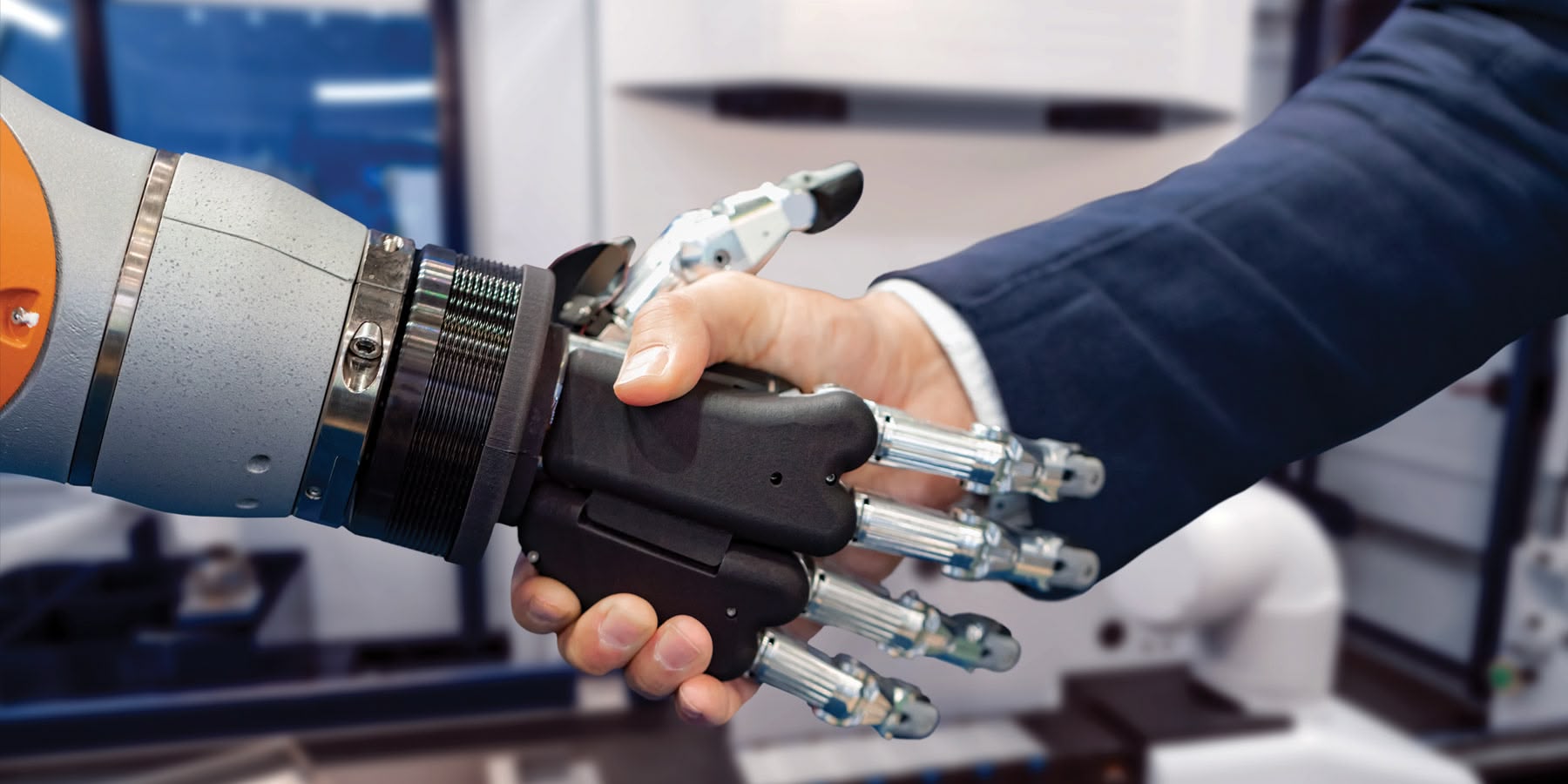
In today's rapidly evolving business landscape, companies continually seek ways to enhance efficiency and productivity. The key to unlocking significant gains lies in the strategic implementation of automation. By understanding and harnessing the power of automation, businesses can streamline operations, reduce costs, and ultimately drive unprecedented growth.
Process automation is the use of technology to automate repetitive tasks and streamline business processes. It involves using automation tools and automated systems to execute tasks that would otherwise be performed manually. For example, every time a lead fills out a contact form on your website, someone on your team has to open the email notification, copy the lead's info (name, email, service requested), and paste it into a Google Sheet for tracking and follow-up. Here is the same automated process:
The goal of process automation is to improve efficiency, reduce human error, and free up the workforce to focus on more strategic initiatives.
Artificial intelligence plays a crucial role in advancing automation by enabling automation systems to learn and adapt. AI-powered automation can handle more complex tasks than traditional automation, such as decision-making and problem-solving. Automation For Agencies provides personalized guidance and hands-on support, helping agency owners automate their marketing with landing pages, social media, email campaigns, blogs and newsletters, repurposed video content, and ai support agents. In this age of rapid innovation, the agencies that thrive are the ones that adapt. Change isn’t just necessary, it’s how you stay ahead.
The benefits of automation extend far beyond simple cost savings. Increased productivity, improved customer experience, and enhanced operational efficiency are just a few of the advantages. By automating repetitive tasks, businesses can free up their workforce to focus on innovation and customer engagement. Investing in automation not only improves operational efficiency but also positions businesses for long-term growth. Automation helps improve customer relationships, optimize the supply chain, and drive operational excellence.

Embarking on the journey of business process automation requires a structured approach. Begin by identifying repetitive tasks and manual processes that consume significant time and resources. Next, evaluate the potential for automation and AI integration within these processes. Prioritize processes that offer the highest return on investment, focusing on areas where automation and AI can significantly reduce human error and boost productivity.
It is essential to clearly define the goals of automation. A phased approach, starting with smaller, manageable automation projects, can help build momentum and demonstrate the benefits of automation across the organization. An easy way to identify gaps is to take the Agency Efficiency Survey. Take the survey now and uncover the time-saving opportunities your competitors are already capitalizing on.
Selecting the appropriate automation systems is crucial for successful implementation. Consider the specific needs of your business and the capabilities of various automation tools. Look for automation systems that are scalable, flexible, and easy to integrate with existing infrastructure. AI-powered automation solutions should offer machine-learning capabilities to adapt and improve over time. Evaluate the vendor's track record, customer support, and security measures.
Investing in automation systems that align with your business goals ensures long-term success and maximizes the benefits of automation. It is a good idea to look for systems that can be custom-tailored to work in conjunction with automation and AI. Book a discovery call with Automation For Agencies to get started.
Seamless integration of AI into existing business operations is paramount to realizing the full potential of AI and automation. Start by identifying areas where AI can augment human capabilities and enhance decision-making. Integrate AI into automation workflows to handle complex tasks and improve efficiency. Monitor the performance of AI systems and make adjustments as needed to optimize results. A well-planned integration strategy will help you harness the power of automation and AI to drive innovation and business growth. Proper application of automation tools is crucial for leveraging the power of automation.

By implementing automation, businesses can dramatically increase workforce efficiency. Automation technologies handle repetitive tasks, freeing up employees to focus on more complex and strategic initiatives. Using automation reduces human error and ensures consistency, resulting in higher-quality output and an improved customer experience. The power of automation lies in its ability to streamline workflows, optimize resource allocation, and empower the workforce to achieve more, driving operational excellence. Integrating AI and automation helps businesses operate more effectively.
Measuring productivity gains achieved through AI and automation is essential for demonstrating the benefits of automation. Key performance indicators (KPIs) such as reduced cycle times, increased output, and decreased cost savings can quantify the impact of automation. AI-powered automation systems provide real-time data and analytics to track process improvements and identify areas for further optimization. By monitoring these metrics, businesses can assess the effectiveness of automation investments and refine their strategies to maximize productivity gains. Automation helps in improving process efficiency.
Examining case studies of successful automation implementations provides valuable insights and inspiration. Businesses across various industries have achieved remarkable results by automating their manual processes. These examples showcase the transformative potential of AI and automation. Studying these success stories can help businesses identify opportunities to harness the power of automation and drive significant improvements in efficiency and productivity. Investing in automation shows great results.

The future of business is inextricably linked to advancements in AI and automation. Several key trends are shaping the landscape of process automation. These trends empower businesses to automate complex workflows, enhance decision-making, and accelerate digital transformation. As automation technologies continue to evolve, businesses that embrace these trends will gain a significant competitive edge.
While the benefits of automation are undeniable, businesses must also address the challenges and considerations associated with implementing AI-powered automation. These include addressing workforce concerns about job displacement, ensuring data security and privacy, and managing the complexity of integrating automation systems with existing infrastructure. Careful planning, transparent communication, and a commitment to workforce training are essential for mitigating these challenges. It’s normal to be wary of automation, but the agencies that lean in are the ones gaining more time, happier clients, and real momentum.
Ultimately, the goal of implementing AI and automation is to achieve operational excellence through innovation. By automating repetitive tasks, streamlining business processes, and empowering employees to focus on higher-value activities, businesses can unlock new levels of efficiency and productivity. AI-powered automation enables organizations to adapt quickly to changing market conditions, innovate more effectively, and deliver exceptional customer experiences. Curious how AI and automation can work for your agency (without the overwhelm)? Let’s chat, book a free discovery call with Automation For Agencies.